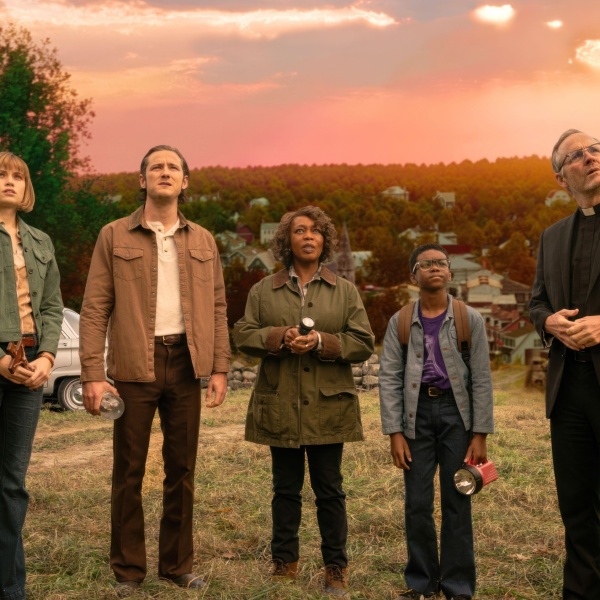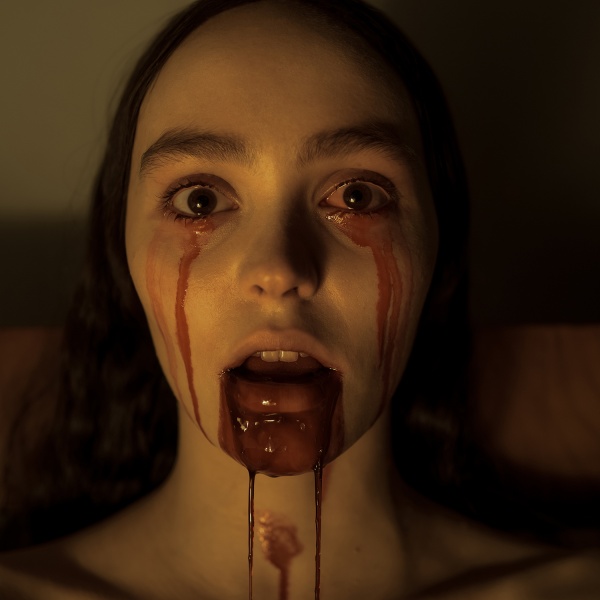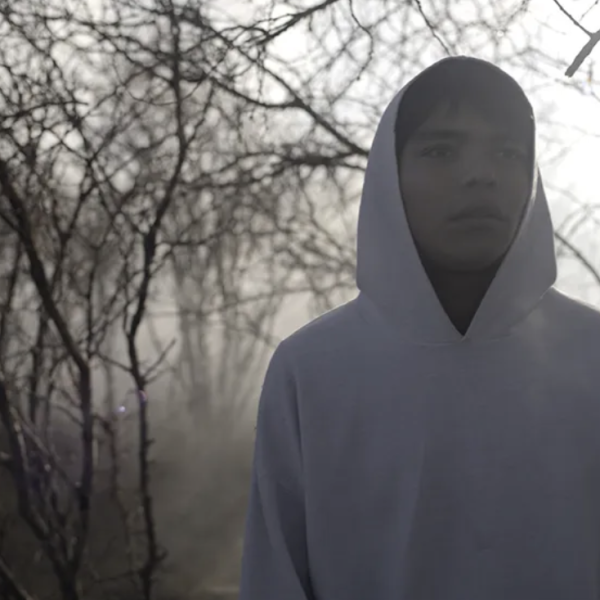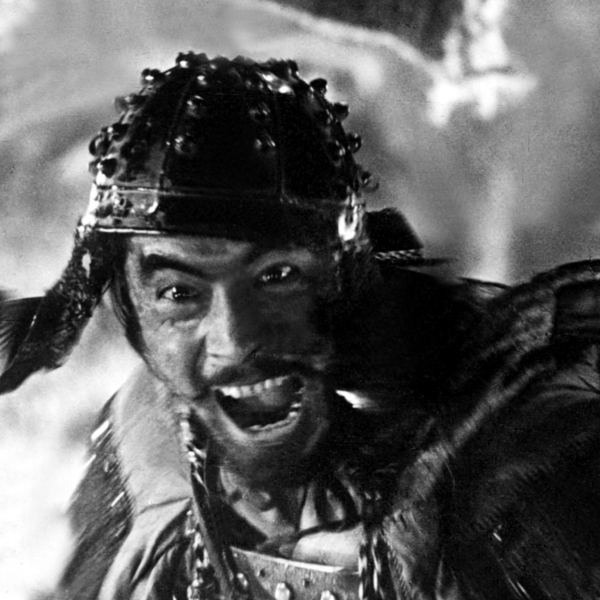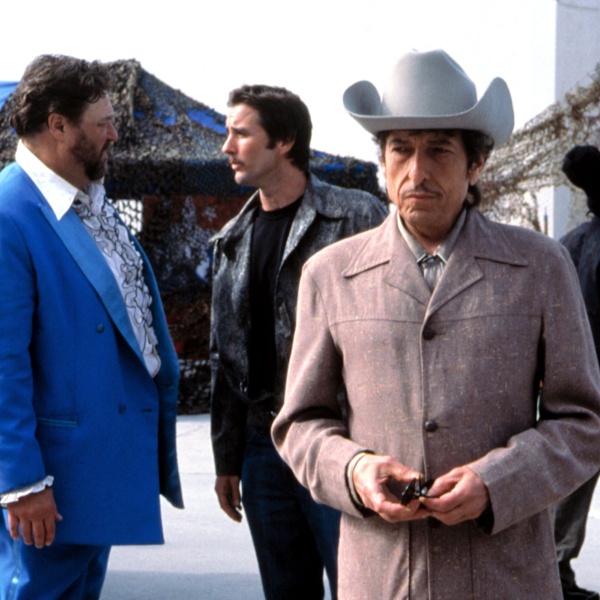
Two years after Lars Von Trier caused a major stir at Cannes with his contentious “Antichrist,” the enfant terrible returns to the Croisette in a much more subdued mood with “Melancholia.” Despite the premise, which sounds tailor-made for Von Trier to provoke and prod his audience, the film is easily the most restrained the director has been “Europa.” Essentially shock free, the operatic, three act film plays more like an Ingmar Bergman chamber piece than anything else and the biggest surprise is just how contemplative Von Trier is this time around.
Perhaps like no other director working today, it’s difficult to talk about any film by Lars Von Trier without addressing his personal battle with depression. It has played a big role in his life as well as his work (“Antichrist” was written in the wake of a crippling episode of depression), but the director tackles the disease head on with “Melancholia,” a not so subtle look and exploration of the depths to which it suffuses and reaches the core of those in the throes of it.

The film opens with a beautiful, extended, dialogue-free, Wagner driven piece in which, quite simply, Lars Von Trier ends the world. Already drawing comparisons to the birth-of-the-cosmos sequence in “The Tree Of Life,” the director moves in the opposite direction here, showing the beauty of the universe while life on Earth is freeze framed and then rather gorgeously smashed to smithereens. From here we’re thrown into Part One: Justine. Played by Kirsten Dunst, this entire roughly hour long portion follows the wedding reception of her marriage to Michael (Alexander Skarsgård). At first, she seems about as happy as a new bride can be expected to be. Looking radiant, Justine and Michael arrive a couple of hours late to the massive home of her sister Claire (Charlotte Gainsbourg) and her husband John (Kiefer Sutherland). With the new couple now arrived, the party begins in earnest but it quickly becomes apparent that Justine is struggling to maintain her composure.
At the beginning of the evening, Justine is the very picture of a happy new bride but as the hours wear on, she strains to keep her depression — which she describes as a grey fog that she is trudging through — from coming to the surface. It definitely doesn’t help that her family has plenty of issues on their own. Her boozy father Dexter (John Hurt) makes himself unavailable even when she directly implores him for a moment to chat while her viper-tongued mother Gaby (Charlotte Rampling) embittered by divorce, spits vitriol at the “rituals” of the evening and telling Justine to “enjoy it while it lasts. Her boss Jack (Stellan Skarsgård) won’t leave her alone even on her wedding night, stalking her throughout the evening about the tagline of a new campaign they are working on at the firm and he even hires Tim (Brady Corbet) to follow her around so that if/when inspiration hits, he’ll be there to record it. By the end of the night, Justine retreats into her own world, wandering the grounds of the estate and avoiding her new husband. And above all this, a new bright star dominates the evening sky.
In Part Two: Claire. Some time has passed and Justine is now much more ill. Under the weight of a severe depression, she comes to Claire’s home to try and recover. Sleeping most of the day and sapped of energy and appetite, the pain under which she is suffering is palpable. But Melancholia now looms closer to Earth than it ever has before. For science nut John, he’s fascinated, and spends most of his time tracking its movement. But Claire is slowly becoming more and more anxious that Earth will be hit and a curious shift begins happening. Justine seems to be at a strange peace with the possibility of the world ending, while her sister becomes increasingly nervous and panicky, relaying on John’s reassurances that everything will be fine. For Justine, it will be an end to a world that she calls “evil” and has given her nothing but pain, while Claire is terrified of the wonderful life she has been given coming to horrific end.
Conceptually, there probably isn’t a film that is more obvious thematically at Cannes than “Melancholia.” The planet stands in as the disease itself, “coming out from behind the sun” to devastate everything in its path both physically and mentally. Credit to Von Trier for making the metaphor work, but the film also sags under this singular focus. Running well over two hours, “Melancholia” could definitely use a trim. Both parts are (overly) luxuriously long in order to develop the extent under which Justine and later Claire battle their respective moods. As a cinematic profile of profound psychological devastation, “Melancholia” is a success, but the film never moves much beyond its unrelentingly grim tone. Von Trier seems to revel in the hopelessness felt at the very pit of depression — and enjoys putting his audience there — but that contentment almost seems too easy for a disease that is so much more complex. It’s shame that the array of characters in Part One are largely absent in Part Two, because for anyone who has suffered or knows someone who has suffered depression, its repercussions ripple outward and the disease itself is at times ephemeral and even shifting from day to day — and that multi-facted depiction is sorely missing in the film at large.
But what keeps the tough “Melancholia” from sinking into its own, at times, self-pitying mood is the standout performance by Dunst. The actress has been lost in a wilderness of tentpoles and romcoms in recent years, but with this film she makes her first real statement in a long time to be taken seriously as an actress. She navigates the film ably, and Von Trier couldn’t have asked for a better stand in for a character that is clearly based on himself. Gainsbourg is reliable, though more or less tuned in to a lower key version of character from “Antichrist,” while Sutherland is solid as her husband who barely tolerates Justine’s inability to fend for herself. And a special mention must be made about the scene-stealing Udo Kier who appears as comic relief in Part One as the overly sensitive wedding planner.
Lars Von Trier continues to be his own best friend and worst enemy. We continue to admire the director and his dogged commitment to films that follow his own unique vision and personality right to the bitter end. But it’s that self-indulgence that often sabotages his own works as well. “Melancholia” is a personal project in the best and worst ways. We can’t imagine any other film tackling depression with the directness Von Trier does here anytime soon, but there is a curious lack of sensitivity and even compassion in the picture that seriously holds it back. Lars Von Trier films is still his own most fascinating subject, but with “Melancholia,” it would have been nice if he had orbited a bit more daringly outside his very comfortable sphere. [C+]

